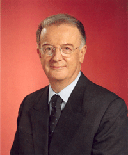Towards religio-cultural pluralism |
In our modern times, we are witnessing interesting changes in the world as religion is making inroads into our societies and into world politics. The resurgent role of religions is witnessed almost everywhere.
People talk about God all the time and how fundamentalisms of all kinds (including Catholicism, Judaism, and Islam) are growing and have been very vocal in their quest to express faith in the public sphere, believing that religion should rule every aspect of personal behavior.
The expectation that religious movements and faith-based politics would diminish in influence or disappear altogether in the context of modernization and globalization has clearly been disproved by the emergence of religious-political movements with strong popular support in a number of regions and across several different faith traditions.
Even in Europe, where secularization of religious behavior made it a private affair and secularism is responsible for the clear separation of state and religion, religious movements are thriving.
If we try to look at the situation from the ‘worldview paradigm’, one could say that the problem in Europe is that secularism can no longer manage to ensure a constructive dialogue between religious worldviews, namely between Christianity and Islam. Indeed believers may not like to see religions conceptualized as belief systems but the advantage of this approach is twofold:
* The question of truth in the various systems of beliefs becomes nonsense because beliefs are like axioms in a theory: they cannot be proven or argued for, but only argued against. Therefore, there is no need to enter into the controversy of the truth of religions, whether Christianity, Judaism, Hinduism or Islam. We can leave theology to theologians and this is good news.
* Being considered as systems of beliefs, different religions can, if they have sufficient beliefs in common, hold a constructive dialogue between them and allow for cross-cultural exchanges. In this case, a consensus between different worldviews can be achieved.
Now in spite of being a system of beliefs, normally a religion doesn't imprison its believers in it, doesn't preclude them from understanding other worldviews and genuinely communicating with others.
Nonetheless, I tend to think that we need to reflect further on pluralism, in particular on religious pluralism. Are we confronted with a new religious pluralism? Does it undermine the cultural and social foundations of democracy? Is it the reason why identity politics has become more salient?
What's wrong with new religious diversity in secular Europe? Is it pluralism that is failing in our present times? After all, looking back on history, it seems to me that "the relation between pluralism and religion has never been unambiguous"!
Now, because public interest in religious pluralism has grown dramatically in Europe but also on the other side of the Atlantic, religion has moved up the political agenda in Europe, in the United States and around the world.
Looking at Western Europe as a whole, we can say that growth in religious diversity is mostly related to immigration and that in continental Europe at least, immigration and Islam are almost synonymous.
This is a key issue to understand the challenges ahead.
Despite differences of policy responses to ethnic and religious pluralism from country to country, as well as differences in integration policies, the general assessment among publics, politicians and the press is that none of the attempts to integrate Muslim religious minorities into European countries has been successful.








 Jorge Sampaio started his political at the Law School of the University of Lisbon. From 1979 until 1984, he was a member of the European Commission for Human Rights. From 1989 to 1991, he was president of Socialist Party. He won the Portuguese presidential election in 1996 and in 2001; and served as until March 2006. In April 2007, he was appointed as the High Representative for the Alliance of Civilizations, a UN initiative aimed at crossing cultural and religion divides between communities.
Jorge Sampaio started his political at the Law School of the University of Lisbon. From 1979 until 1984, he was a member of the European Commission for Human Rights. From 1989 to 1991, he was president of Socialist Party. He won the Portuguese presidential election in 1996 and in 2001; and served as until March 2006. In April 2007, he was appointed as the High Representative for the Alliance of Civilizations, a UN initiative aimed at crossing cultural and religion divides between communities.
Post new comment